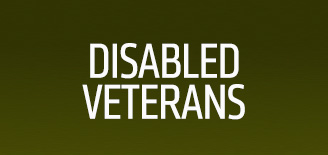Women Veterans: The Long Journey Home
DAV report shows service gaps for women in health care, transition services, disability compensation, employment and housing.

The research reveals that America’s nearly 300,000 women veterans are put at risk by a system designed for and dominated by male veterans.
This report paints a compelling picture of federal agencies and community service providers that consistently fail to understand that women are impacted by military service and deployment differently than men. And it points to changes that are needed in the overall culture and services provided by the federal government and local communities, listing 27 specific recommendations.
“The number of women veterans is growing, and our country is simply not doing enough to meet their health, social and economic needs,” said Joy J. Ilem, DAV’s deputy national legislative director.
View the Report
The research reveals that America’s nearly 300,000 women veterans are put at risk by a system designed for and dominated by male veterans.
  |
  |
  |
| VA and DoD are still not fully prepared to provide equitable access to the gender-specific care and services that women need, even as the demand for such care increases. | One in five women enrolled in VA health care screen positive for MST, but 31% of VA medical centers and CBOCs can’t provide adequate services. |
VA and DoD have difficulty providing gender-specific peer support, group therapy, and specialized inpatient mental health care designed to meet the needs and preferences of women. |
  |
  |
  |
| Women who have lost one or more limbs may not receive support and care tailored to their needs. And women are less likely to have a prosthetic that fits properly. | Post-9/11 women veterans have higher unemployment rates than male veterans and non-veteran women. Challenges in the labor market are exacerbated by medical and mental health concerns. | Women veterans are at least twice as likely to be homeless as non-veteran women. Women veterans are also more likely to be single parents with one or more dependents. |
Women Veterans: The Long Journey Home presents the most comprehensive assessment conducted to date of the policies and programs at the Departments of Veterans Affairs, Defense, Labor and Housing and Urban Development. The report was authored by Frances M. Murphy, MD, MPH, former VA deputy under secretary for health, the highest career official in the Veterans Health Administration, and the first woman, and first woman veteran, to hold this position. Dr. Sherry Hans, PhD, former deputy chief ethics officer at the VA and a past health policy advisor at the U.S. Department of Health and Human Services, co-authored the study.
Media Sponsor


